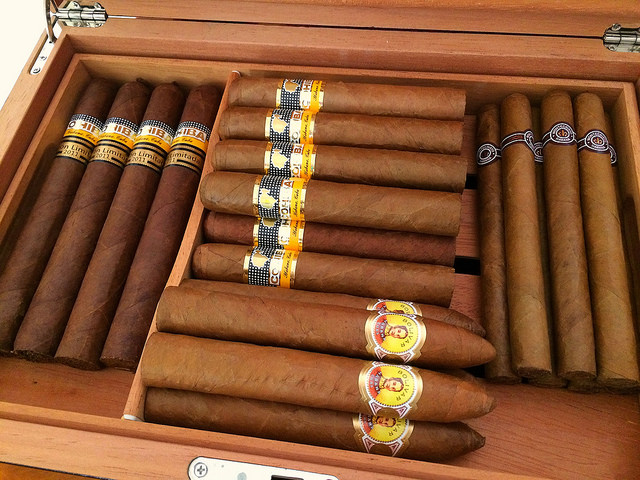Tip: Five Things You Need To Know About the New Cuban Cigar Rules
19 Oct 2016

On Friday, news broke that federal rules for importing Cuban cigars (and rum) were changing. While the Obama administration has been largely hostile to handmade cigars, moves towards normalizing relations with Cuba have been a silver lining to the otherwise draconian stance by the Obama presidency, most notably the FDA, towards cigars. The changes officially went into effect on Monday, October 17. Here’s what you need to know:
Cuban cigars bought overseas can now be brought into the U.S.
In December 2014, for the first time since before Cuban Embargo, it became legal to import Cuban cigars into the United States, but only for officially licensed travelers to Cuba and only if the value of the cigars (and rum) totaled $100 or less. Further, until March 16, 2016, it was also technically illegal to buy Cuban cigars overseas even if they weren’t smoked outside the U.S. Now, it is legal to bring back cigars purchased in Cuba or elsewhere, as long as the cigars are for personal consumption.
Online sales from overseas on hold for now.
Many of the news stories about the rule change were vague and implied that all overseas purchases of Cuban cigars for personal consumption were allowed. Since non-approved alcohol can be purchased from overseas for consumption, it left the window open for Cuban cigar purchases overseas online, which would then be delivered into the U.S. However, the Treasury Department has made clear that the rule changes for importing Cuban cigars only apply to accompanied baggage: “OFAC is also removing the prohibition on foreign travelers importing Cuban-origin alcohol and tobacco products into the United States as accompanied baggage.” So while non-FDA approved, non-Cuban cigars can be purchased from overseas and shipped into the U.S., Cuban cigars still cannot be imported unless you are personally traveling with them (in other words, they must be in your baggage).
Taxes and duty still must be paid on Cuban cigars.
While you can bring in Cuban cigars, you are still responsible for declaring them on your customs form. The Treasury Department also notes that you may have to pay when you bring your cigars back with you: “In all cases, the Cuban-origin goods must be imported for personal use, and normal limits on duty and tax exemptions will apply.” Generally, you can bring back up to 100 cigars with a value of $800 without paying duty. Note you also may be required to pay federal excise taxes on the tobacco products you are importing.
There are lots of fake Cuban cigars out there.
Cuban cigars tend to be expensive, which creates an incentive for people to sell counterfeits. Since we first wrote about how to spot a fake, Habanos (the Cuban government-controlled distribution company) has beefed up its assistance to cigar smokers when it comes to verifying a Cuban cigar’s authenticity. In addition to a helpful page detailing the anti-counterfeiting measures they use, they also have a page where you can input the serial number of a box to check authenticity. But the best advice remains to purchase your cigars only from reputable and official Cuban cigar retailers, and always be weary of a deal that seems to good to be true. Fake Cubans have even been spotted at duty-free shops in airports. And the guy at the beach selling “discount Cubans” is almost certainly selling fakes.
Don’t get caught up in the Cuban hype.
We’ve said many times that while Cuban cigars can be very special, they are not the be-all-end-all of cigars. Many of the finest cigars produced today are made outside of Cuba, and if you are not used to Cuban cigars, you may not find them particularly enjoyable as they tend to be different from the finest Dominican, Honduran, and Nicaraguan cigars. The benefit of the new rules is that more Americans will get to legally try authentic Cuban cigars for themselves, and they will finally be able to judge them free from the hype and mystique that is tied up in trying a banned product.
–Patrick S
photo credits: Flickr

 Patrick Ashby
Co-Founder & Editor in Chief
Patrick Ashby
Co-Founder & Editor in Chief Patrick Semmens
Co-Founder & Publisher
Patrick Semmens
Co-Founder & Publisher George Edmonson
Tampa Bureau Chief
George Edmonson
Tampa Bureau Chief
Thanks for the quick followup on the online sales issue. I assume accompanying the cigars is legal not only for “overseas” travel, but for travel to Canada as well. Right?
Yes — any Cuban cigars purchased anywhere in the world can be brought back to the U.S. The same rules apply to travel to Mexico, Canada or anywhere outside the U.S.
Thanks!